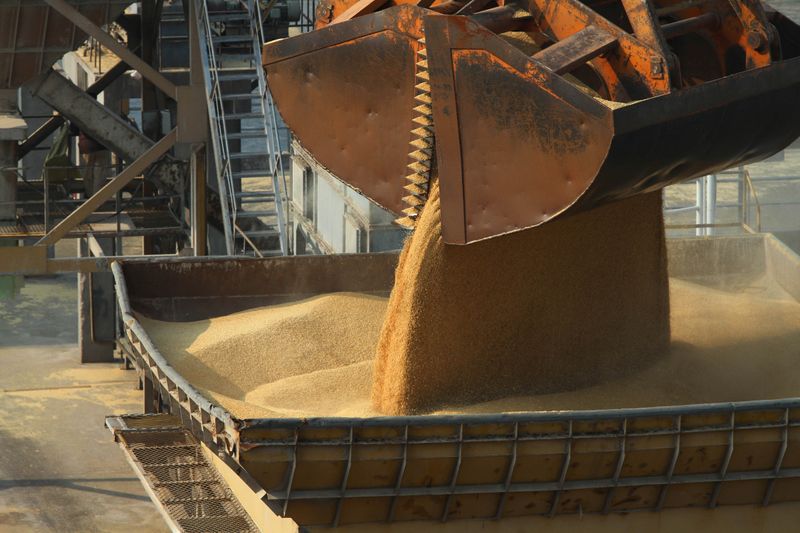SYDNEY (Reuters) – Australian Prime Minister Scott Morrison said on Monday he expects China to keep its judgment on whether Australia dumped barley there separate from protests over an Australian call for an enquiry into the origins of the novel coronavirus.
Several major Australian grain groups on Sunday said they had been told China was proposing tariffs on barley from Australia after an 18-month enquiry into whether they have been dumping the grain into the Asian nation.
China’s Ministry of Commerce (MOFCOM) is considering imposing a dumping margin of up to 73.6% and a subsidy margin of up to 6.9% for barley imported from Australia, according to industry group Grain Producers Australia.
The regulatory proposal on the tariffs comes about two weeks after China’s ambassador to Australia said there may be economic consequences for Australia’s push for an enquiry into the origins of the coronavirus that causes COVID-19.
Morrison, however, said he expected China to make its final judgement on barley-dumping free from politics.
“We would expect and hope that this issue will be determined on its merits (whether) it’s an anti-dumping issue from the Chinese perspective,” Morrison told reporters in Canberra.
“They certainly haven’t raised it as connected to any other issues, and I’d be extremely disappointed if it was.”
Australia’s conservative government and its grain exporters have denied they are dumping barley.
Australia has eight days to respond to MOFCOM’s tariff proposal before the ministry rules on them on May 19, a source familiar with the matter said on Monday.
China’s foreign ministry spokesman Zhao Lijian told reporters at a daily briefing in Beijing that the review of Australian barley imports was a normal case of a trade remedy investigation in line with relevant laws and World Trade Organization regulations.
He referred further queries to the commerce ministry. It did not immediately respond to a Reuters request for comment.
If China imposes a tariff on barley, it would severely hurt Australian grain growers, who have already sown their crops.
“An 80% tariff would effectively stop the trade. Australian growers would have to find an alternative market in a world that is pretty well supplied,” said Phin Ziebell, agribusiness economist, National Australia Bank.
Australia is China’s top supplier of barley, sending it about A$1.5 billion to A$2 billion ($980 million to $1.3 billion) of the grain each year. China takes more than half of Australia’s barley exports.
If Australian barley stopped flowing to China, it would open the door for U.S. exporters.
China in January pledged to increase purchases of goods and services from the United States by $200 billion – including large amounts of agricultural products – over two years compared to a 2017 baseline.
Australia has echoed U.S. questions about the origins and spread of the coronavirus that emerged in the Chinese city of Wuhan late last year and has called for an international investigation.
China has dismissed the questioning as groundless saying it has been open and transparent about the outbreak.
(Reporting by Colin Packham; additional reporting by Huizhong Wu; Editing by Tom Hogue, Robert Birsel)



















